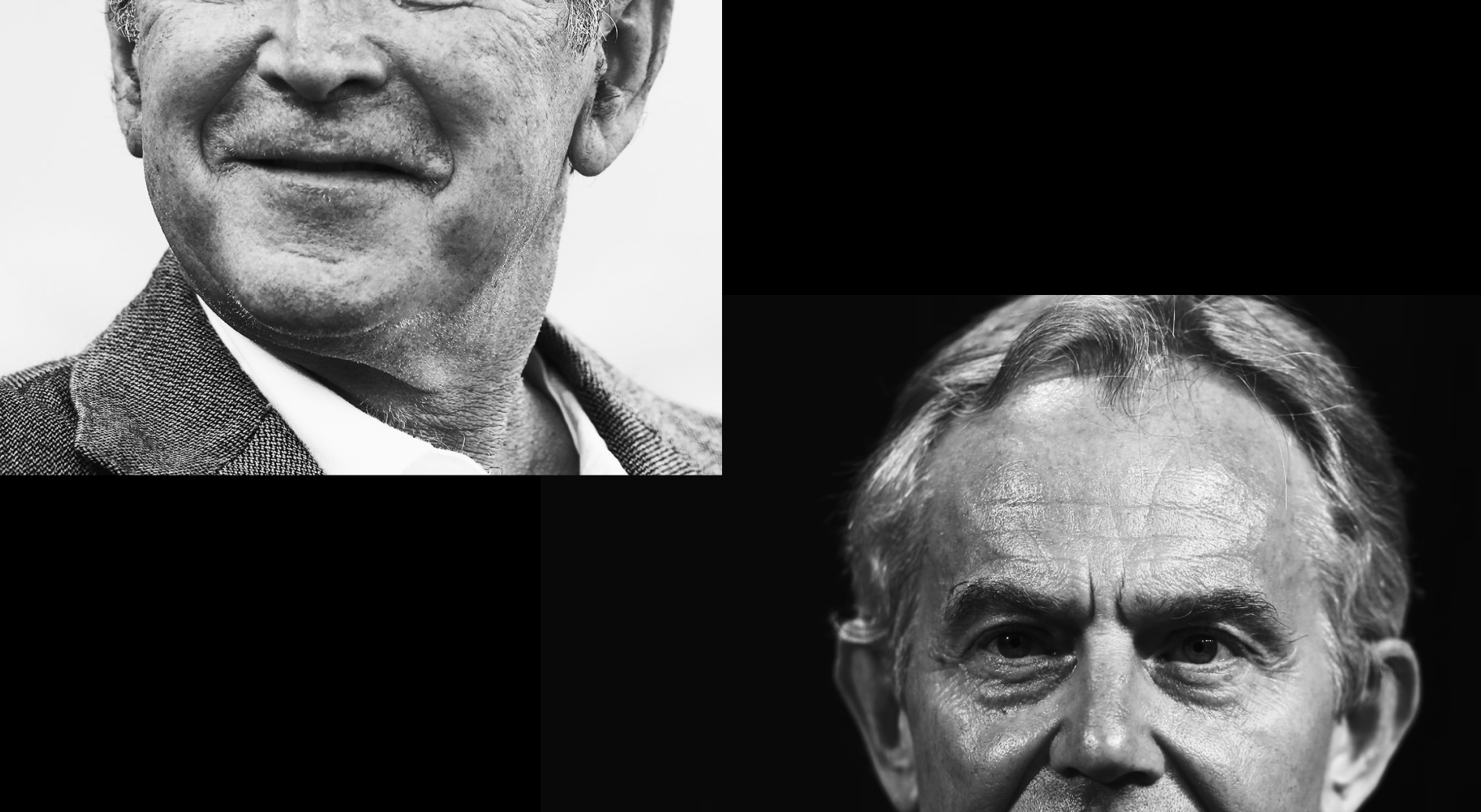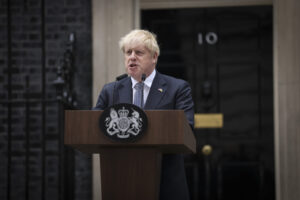New Politic
Margaret Hassan has been all but forgotten. By 2003, the year of the joint British and US invasion of Iraq, she was a dual British and Iraqi national, the country lead for CARE International, one of the world’s largest NGOs, and a widely respected aid worker known for her commitment to the children and young people of Iraq.
She was opposed to the invasion, telling The Independent at the time that the Iraqis were already “living through a terrible emergency. They do not have the resources to withstand an additional crisis brought about by military action.”
Yet when most aid workers fled as the security situation deteriorated in late 2003, Margaret stayed. She was an Iraqi citizen. She spoke fluent Arabic and had married an Arab Muslim. She probably felt at home.
Like so many others, Iraqis whose names we will never know and Western aid workers, soldiers and journalists whose names are at least recorded, Margaret died a violent death. She was kidnapped by an unknown group in late 2004. She was kept hostage for a few weeks, during which her captors found time to issue a harrowing video in which she begs for help. On 8 November she was murdered.
Adding further tragedy is the simple fact that she knew Iraq. She knew the conduct of the invasion was incompetent and would lead to violence and chaos. A year before her death I heard her speak to a room full of American and British aid workers, soldiers and representatives of the interim government set up by Coalition forces.
Margaret was scathing of their attempts to bring order to the country. I have long forgotten her exact words but her sentiment was clear: Coalition forces did not know what they were doing; violence and chaos would be the result; and people were going to die because of the ethnic and religious tensions the UK and US had unleashed, alongside their inability to contain the fallout.
***
The Iraq war is now history. It is over 18 years since the start of the invasion. Today marks 10 years since the formal end of the US mission in Iraq. But its impacts linger both in Iraq and the West.
Casualty estimates vary but are at least in the hundreds of thousands. Millions more were displaced and injured. 179 British soldiers lost their lives, as did 4,507 US servicemen and women. Tens of thousands of Iraqi forces and insurgents were killed.
Human rights abuses perpetrated by Coalition forces, private contractors and insurgent groups were horrific. Torture and prisoner abuse by US Army personnel at Abu Ghraib detention centre alone involved the detention of thousands of Iraqi men and women. Torture at Abu Ghraib included rape, sodomy and extensive sexual abuse, waterboarding, pouring phosphoric acid on detainees, sleep deprivation and physical beatings.
The war led to a humanitarian crisis which saw child malnutrition rise to 28% in 2007. During some periods most Iraqis did not have access to clean drinking water. The number of cases of cancer, birth defects, miscarriages, illnesses and premature births increased due to the presences of depleted uranium and chemicals used during American attacks. By the end of 2015, according to the United Nations High Commissioner for Refugees, 4.4 million Iraqis had been internally displaced. Civil unrest and frequent violence continue in Iraq to this day.
***
Here in Britain the Iraq war is still referenced as a horrific misjudgement but its details are all but forgotten. Its failure still tarnishes the name of Tony Blair, but even that association has waned considerably over the past decade, despite it being only five years since the final report of the Chilcot Inquiry was published.
At the time Richard Norton-Taylor of The Guardian wrote that the report “could hardly be more damning” and “was an unprecedented, devastating indictment of how a prime minister was allowed to make decisions by discarding all pretence at cabinet government, subverting the intelligence agencies, and making exaggerated claims about threats to Britain’s national security”.
Yet despite fading memories of the Iraq War, its fallout still dominates our foreign policy and sense of Britain’s role in the world. Most obviously the war immediately ended any interest or belief in liberal interventionism.
The result was a cowed British foreign policy unsure of its role and fearful of the implications of its own military. This was at least in part mirrored by a similar reaction in the US. The result has been over a decade of US and British inaction in the face of aggression and ongoing conflict.
Some will celebrate this outcome. But in that time Russia has been more belligerent and bold, annexing Crimea and destabilising Ukraine while the West has watched and if it has responded at all has done so with sanctions.
The world has looked the other way while Syria has torn itself apart for a decade and more recently as conflict has raged in Myanmar, South Sudan and Ethiopia, to choose but three examples. The Syrian civil war alone has cost over 500,000 lives. More than 6 million have been displaced internally. A similar number have fled the country.
Western failure to act was in some ways a direct result of angst over the failures of Iraq. A planned joint action led by the US, UK and France in 2013 fell, perhaps ironically, due to the actions of then Labour leader Ed Miliband.
[Read: Tony Blair Wants to Make a Comeback]
He led calls in parliament for action to be cancelled, a vote he won given the Conservatives’ reliance on the Liberal Democrats for a parliamentary majority. Fearful of alienating Congress Obama also backed down.
France also had no choice but to back down. François Hollande, then French president, was convinced that this was “a missed opportunity that could have changed the course of the war”.
David Cameron’s government accused Miliband of “playing politics” instead of responding “seriously” to the crisis in Syria. Former Liberal Democrat leader Paddy Ashdown wrote that he felt “sad” and “even a little ashamed” by parliament’s decision not to join military action.
“The bottom line is this,” wrote Ashdown. “Parliament was asked to join an international coalition led by a US Democrat president, whose aim, a firm response to a flagrant breach of international law, was supported by most European nations and many Middle Eastern ones. And parliament said no.”
The result is two Labour leaders, one who intervened disastrously, contributing to the death of hundreds of thousands in Iraq and a second who was instrumental in preventing intervention in Syria at a time when it could have prevented years of conflict, potentially saving hundreds of thousands. Miliband won the vote and the chance to claim that Labour had changed, but at what cost?
Britain has still not had a reasoned debate about our role in the world and our willingness to partner with allies to intervene to prevent tragedy or the aggression of others. Instead, the Brexit debate, while ostensibly about freeing Britain to play a global role has instead focused our attention on ourselves, drawing boundaries and creating barriers where there was once open conversation and a desire to collaborate and build alliances for our benefit and for the greater good.
***
The Johnson Government is perhaps more willing than any since Blair to celebrate and deploy Britain’s military. But this has been almost entirely performative, a weak attempt to prove that Britain remains a global player after Brexit which, in the eyes of any impartial observer, has only reduced our influence and power. Security experts are clear in their belief that Brexit has weakened our alliances, both diplomatic and military, endangering British and European security in the process.
There is no sense of statecraft to Johnson’s deployment of military power. The foreign and defence policy review announced in March was incoherent, identifying Russia as the most potent threat yet — in pursuit of a global role — shifting resources to the Indo-Pacific to combat China, a move even the US said was counterproductive.
There is a clear mismatch between its ambition and the resources and capabilities available, perpetuating the flawed assumption that the UK can maintain a full-spectrum military capability — including troops, expeditionary forces, an expanded nuclear deterrent and cyber warfare expertise. The result will be resources spread too thinly.
[Read: Refugees Aren’t the Problem. Politicians Are].
Meanwhile, the only occasion on which any action has had to be taken, the withdrawal from Afghanistan, was an unmitigated disaster. The rushed US withdrawal has abandoned the Afghan people to renewed tyranny under the Taliban and a humanitarian crisis. The Americans and we seem to have no sense of responsibility for this crisis, despite our boot and bomb prints being all over the country.
The disaster of the Iraq War ended Britain’s ability to think strategically about its role in the world. We lost the ability to formulate and prosecute a nuanced foreign policy that works to maximise British and European security and is willing intervene when necessary to keep others from harm.
We lack a foreign policy that can cope with the concept that intervention may be right in some circumstances and wrong in others; a policy that recognises the world is complex but on occasion risks need to be taken in the name of achieving humanitarian goals, and that looking away or assuming intervention is always wrong because it was so very wrong in 2003 is always the right answer.
The Iraq War was a terrible mistake. It cost hundreds of thousands of lives. But if we are to move beyond it, we need to lay it to rest, learn its lessons, and look afresh at our global role in 2021 and beyond.


